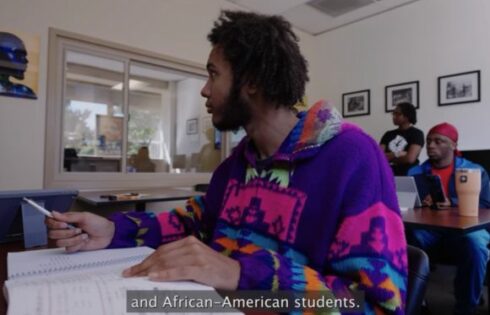
Few people can understand and translate the twisted logic of feminists better than Robert Stacy McCain of TheOtherMcCain.com. Thankfully we have him to translate one of the most troubling student op-eds to be penned in quite some time.
Headlined “Why Yes Can Mean No,” Claremont McKenna College student Jordan Bosiljevac’s April 30 column explains how, when she recently hooked up with a guy, he verbally asked her for consent. She said “yes” – but because of “rape culture” and patriarchy, she really meant no.
Depending on who you are, it might sound ridiculous: why would anyone ever say yes when they meant no? …
Honestly, there’s a lot more to it than that for me. At five, relatives used to kiss my cheeks even as I winced and turned away. At the tender age of twelve, I was taught that my bra straps and thighs deserved detention because they distracted boys at school. At sixteen, my boyfriend assured me that most girls liked this—I just needed to relax. So at 20, in someone’s room after a party, ‘no’ was scary and unfamiliar to me. These incidents, unfortunately, are not unique to me. In discussing this experience with friends, we coined the term “raped by rape culture” to describe what it was like to say yes, coerced by the culture that had raised us and the systems of power that worked on us, and to still want ‘no.’ Sometimes, for me, there was obligation from already having gone back to someone’s room, not wanting to ruin a good friendship, loneliness, worry that no one else would ever be interested, a fear that if I did say no, they might not stop, the influence of alcohol, and an understanding that hookups are “supposed” to be fun.
For me, and many others like me, consent isn’t easy. Yes doesn’t always mean yes, and we misplaced ‘no’ several years ago. This experience isn’t random, but disproportionately affects oppressed communities. Consent is a privilege, and it was built for wealthy, heterosexual, cis, white, western, able-bodied masculinity. When society has taught some of us to take up as little space as possible, to take all attention as flattery, and to be truly grateful that anyone at all could want our bodies or love, it isn’t always our choice to say yes.
Enter McCain, who kindly translates this mind-boggling argument for us:
She was “coerced by the culture” and oppressed by “the systems of power,” you see. That dude she hooked up with after the party might have thought she was consenting to have sex with him when, in fact, he was “culture” and raped her. Or something like that.
The idea that women are “coerced by culture” into having sex with men is, of course, consistent with feminist Professor Marilyn Frye’s assertion that “most women have to be coerced into heterosexuality.” In other words, women do not actually want to have sex with men. Instead, because female “subordination is the basis of male power,” as Professor Charlotte Bunch explained, heterosexuality for women means “submission to personal oppression.” Having sex with men, feminist theory teaches, is part of the “socialized behavior instruction” of “the unnatural, yet universal roles patriarchy has assigned” to women. As lesbian feminist Adrienne Rich explained, “male power manifests itself . . . as enforcing heterosexuality on women,” so that “for women heterosexuality” is “imposed . . . and maintained by force.”
Feminist theory sounds like a real hoot.
As for Ms. Bosiljevac’s argument, she made the most sense when she stated that “sometimes, for me, there was obligation from already having gone back to someone’s room, not wanting to ruin a good friendship, loneliness, worry that no one else would ever be interested, a fear that if I did say no, they might not stop, the influence of alcohol, and an understanding that hookups are ‘supposed’ to be fun.”
Now that is the most honest thing she says in the entire column.
College females must understand that regretting saying yes has much more to do with their own insecurities than rape culture. They should stop blaming men for their mistakes. Guys will be guys. They are going to want to hook up. It’s up to young women to empower themselves to stop giving in to the hook-up culture and say no to men. That’s true feminism. And it’s easier said than done. It requires an understanding of one’s God-given worth, an awareness far too many young women go through their college days without, unfortunately.
Truth be told, Bosiljevac doesn’t need our resentment and scorn, she needs our pity and prayers.
Jennifer Kabbany is editor of The College Fix (@JenniferKabbany)
Like The College Fix on Facebook / Follow us on Twitter
IMAGE: Grafix Tek/Flickr





Please join the conversation about our stories on Facebook, Twitter, Instagram, Reddit, MeWe, Rumble, Gab, Minds and Gettr.